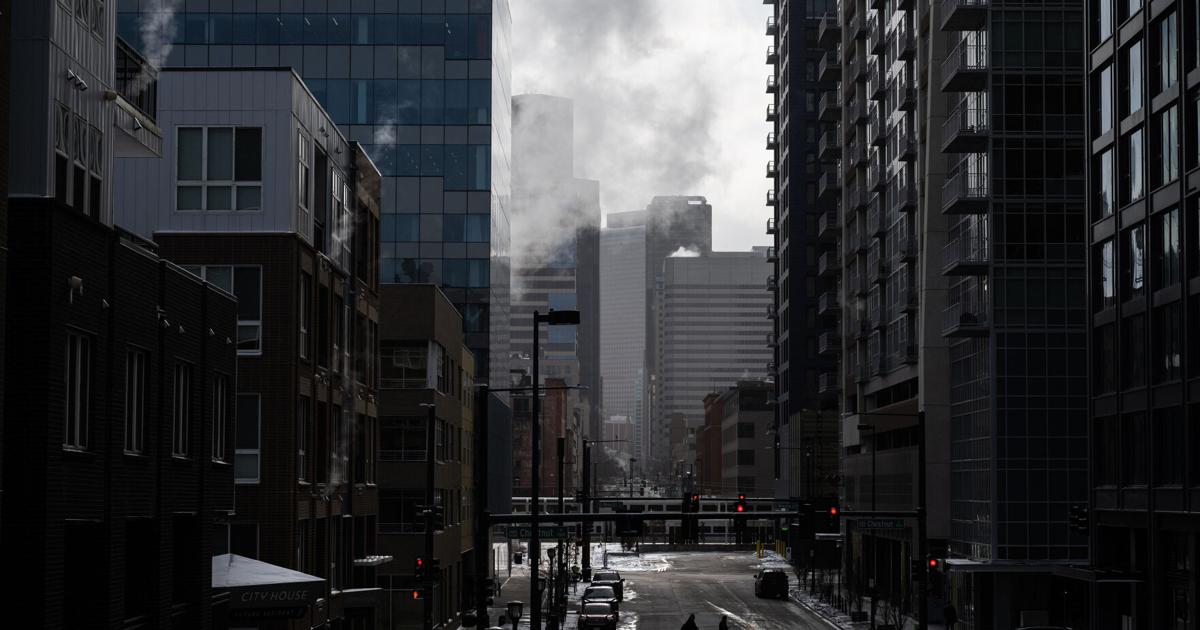Colorado and Denver sued for allegedly violating federal laws on large-building energy standards
Colorado and Denver sued for allegedly violating federal laws on large-building energy standards The Denver Gazette


Colorado and Denver Face Lawsuit Over New Energy Standards

Colorado and the City of Denver are facing a lawsuit in federal district court over rules that require large buildings to meet new energy standards. The lawsuit, filed by apartment and hotel trade organizations, alleges that both the state and the city violated federal laws by setting more stringent energy use standards than those set by the federal government.
Sustainable Development Goals (SDGs)
- Goal 7: Affordable and Clean Energy
- Goal 11: Sustainable Cities and Communities
- Goal 13: Climate Action
The plaintiffs argue that Congress intended to preempt state or local laws that undermine a coordinated national energy policy, overlook the public’s need for reliable energy, and deny consumer choice. The Colorado Air Quality Control Commission, operating under the Colorado Department of Public Health and Environment, passed Regulation 28 in August. This regulation requires owners of existing buildings larger than 50,000 square feet to reduce energy usage by 7% by 2026 and 20% by 2030.
Furthermore, the state General Assembly passed House Bill 21-1286, which mandated the regulation, and it was signed into law by Governor Jared Polis on June 24, 2021. Denver took a slightly different approach by not imposing a hard deadline for changing building systems but requiring analysis of the changeover if it is part of a renovation meeting certain criteria.
In addition, Denver’s regulation imposes increasingly stringent emissions reduction requirements on approximately 3,000 buildings larger than 25,000 square feet in 2025 and 2027, regardless of electrification. The city’s plan aims to eliminate greenhouse gas emissions and make Denver’s electrical grid 80-100% renewable by 2030.
The complaint argues that the energy standards set by Denver and the state are impossible to achieve at a reasonable cost and are not mere energy usage requirements. Instead, the regulations effectively mandate full building electrification and the elimination of natural gas use to meet the standards.
The cost of compliance for approximately 8,000 buildings covered by the state regulation is estimated at $3.1 billion. The Air Pollution Control Division, which drafted the state regulation, acknowledged that consumers could face rent increases as landlords pass on the cost of implementation to their tenants.
Despite claims that electrification is not required, the complaint argues that the energy savings requirements effectively force electrification by framing the savings in terms of CO2 equivalent emissions. The City of Denver’s regulation is stricter than the state’s regulation as it applies to any building larger than 25,000 square feet.
According to Katrina Mangan, director of buildings and homes in Denver’s Climate Office, 21% of buildings in Denver have already met their 2030 targets, and virtually all of them are heated with natural gas or steam. However, the lawsuit alleges that both Regulation 28 and Denver’s ordinances still violate federal law by setting efficiency standards for equipment and appliances.
Both the governor’s office and the Colorado Energy Office declined to comment on the pending lawsuit.
SDGs, Targets, and Indicators
1. Which SDGs are addressed or connected to the issues highlighted in the article?
- SDG 7: Affordable and Clean Energy
- SDG 11: Sustainable Cities and Communities
- SDG 13: Climate Action
2. What specific targets under those SDGs can be identified based on the article’s content?
- SDG 7.3: By 2030, double the global rate of improvement in energy efficiency
- SDG 11.6: By 2030, reduce the adverse per capita environmental impact of cities, including by paying special attention to air quality and municipal and other waste management
- SDG 13.2: Integrate climate change measures into national policies, strategies, and planning
3. Are there any indicators mentioned or implied in the article that can be used to measure progress towards the identified targets?
- Reduction in energy usage by 7% by 2026 and 20% by 2030 for buildings larger than 50,000 square feet (indicator for SDG 7.3)
- Reduction in greenhouse gas (GHG) emissions and transition to renewable energy sources for Denver’s electrical grid by 2030 (indicator for SDG 11.6)
- Implementation of energy efficiency measures leading to lower power bills for tenants (indicator for SDG 7.3)
Table: SDGs, Targets, and Indicators
| SDGs | Targets | Indicators |
|---|---|---|
| SDG 7: Affordable and Clean Energy | Target 7.3: By 2030, double the global rate of improvement in energy efficiency | Reduction in energy usage by 7% by 2026 and 20% by 2030 for buildings larger than 50,000 square feet |
| SDG 11: Sustainable Cities and Communities | Target 11.6: By 2030, reduce the adverse per capita environmental impact of cities, including by paying special attention to air quality and municipal and other waste management | Reduction in greenhouse gas (GHG) emissions and transition to renewable energy sources for Denver’s electrical grid by 2030 |
| SDG 13: Climate Action | Target 13.2: Integrate climate change measures into national policies, strategies, and planning | Implementation of energy efficiency measures leading to lower power bills for tenants |
Behold! This splendid article springs forth from the wellspring of knowledge, shaped by a wondrous proprietary AI technology that delved into a vast ocean of data, illuminating the path towards the Sustainable Development Goals. Remember that all rights are reserved by SDG Investors LLC, empowering us to champion progress together.
Source: denvergazette.com

Join us, as fellow seekers of change, on a transformative journey at https://sdgtalks.ai/welcome, where you can become a member and actively contribute to shaping a brighter future.







